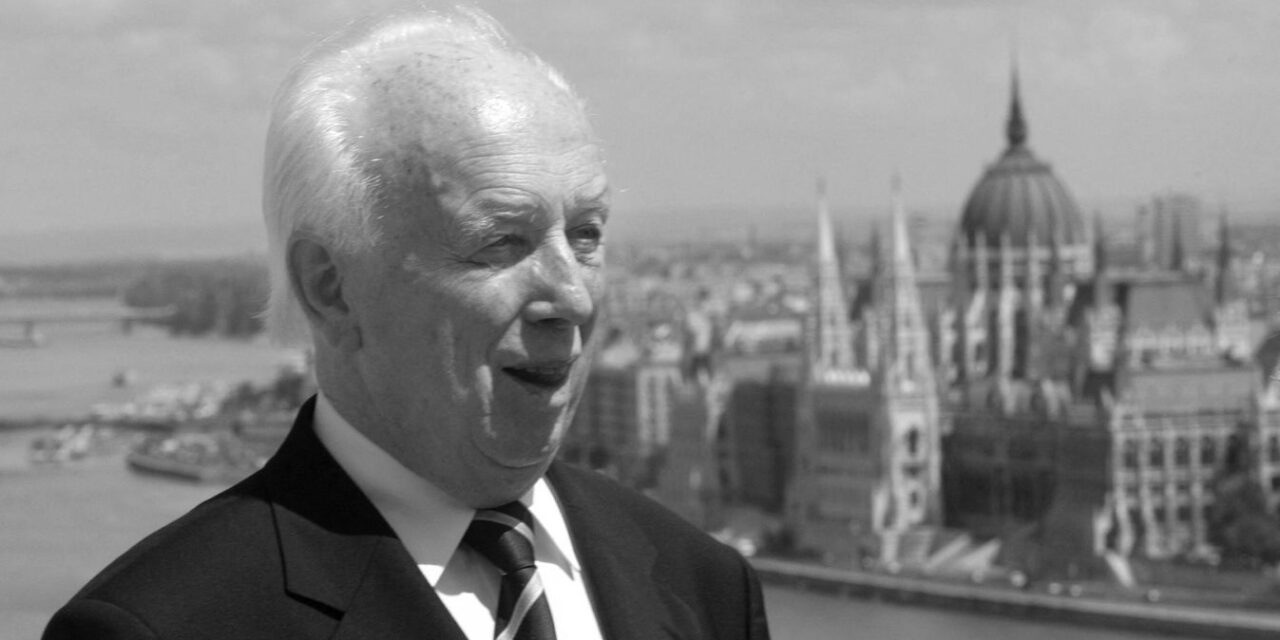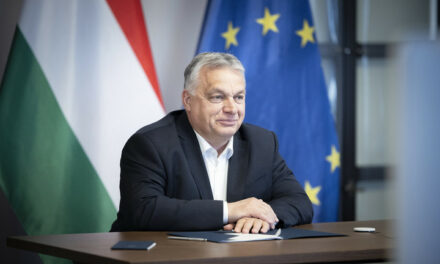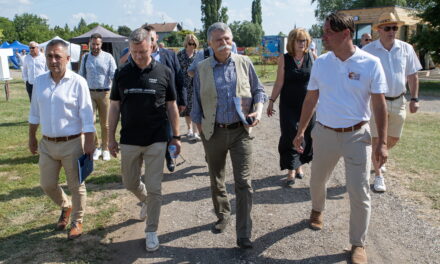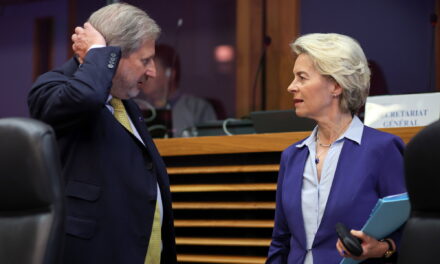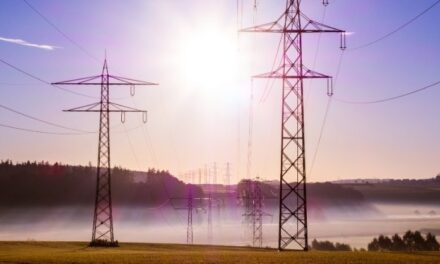Ferenc Mádl, the second president of independent Hungary, minister of the Antall government, Széchenyi Prize-winning jurist, needs no introduction. On the occasion of the thirteenth anniversary of his death, we recall his most important thoughts.
The President of the Republic should express the nation's unity in respecting and protecting the peace and sovereignty of our country;
to ensure our country's worthy place in the family of peoples, in the Euro-Atlantic integration processes, in cooperation with our neighbors; to develop our communities for the benefit of our ten-year civil democracy, our constitutional order and the creative cooperation of everyday life, to help the cradle of future generations, the families; to identify with the traditions of our national history, the commands of our revolutions and freedom struggles.
The President of the Republic must express the unity of the nation in that we feel responsible for the fate of Hungarians living outside the country's borders;
that national minorities have a state-making role, are part of the power of the people, and enrich the country's society and culture.
It expresses the unity of the nation in that it is necessary to protect the new life, the future of the nation, and to strengthen the chances of the youth; that the generations of parents and grandparents deserve respect for everything they did and are doing for their children, their families and the country; that cultural and moral upliftment can be the bread of all, since in culture we find all that we have in common, and also that in which we differ; that the person who creates value, the preservation of value and the creation of value must be surrounded by a worthy appreciation;
that the knowledge-based society brings blessing, not the deterioration of our earth and life.
The unity of the nation can also be expressed by the President of the Republic in the general conviction that churches, religious denominations, communities and self-organizations of citizens have a great role in the cultural, ethical and public reconstruction of the individual and the broadest possible layers of society and in alleviating social problems. Let's love and support this work!
If Attila József could write like this: "My God, if you had a knack, I would help you shout!", if he could do that, then we can do something similar."
/Speech of the elected President of the Republic in the Parliament on June 6, 2000/
***
During the entire history of Hungary, it was the only one with Christianity that made an alliance whose unbroken existence can be celebrated even after a thousand years.
(…) All the saints of the Árpádház and the Hunyadians who defended Europe understood the vocation of Christian Hungarianness. We understood it when we were many and strong, but we also understood it when we were weak. That's when we thought we weren't alone. We believed with Zrínyi's faith, and we believed with Rákóczi's. And we understood that what we became a part of a thousand years ago became an indelible part of our existence and our Hungarianness.
(…) The church tower has been guiding us home from far away for a thousand years.
But the Christian peoples of Europe would also go astray if the bells calling for prayer for survival were not rung every noon for half a thousand years.
And as soon as the church tower merged with the landscape, the southern sun with the sound of the bell, the Hungarian state also became an integral part of the history of Christian Europe."
/Ferenc Mádl's speech at the exhibition A thousand years of Hungarian Christianity, Vatican, October 9, 2001/
***
"We are standing on the holy land of Hungary soaked in blood. There are many of them. That's how we grew up with him. The Mohács battlefield, the victim of Miklós Zrínyi at Szigetvár. The 1848-1849. the blood of the heroes of the war of independence in the scenes of the great battles. The blood of Lajos Batthyány at the New building in Pest. The blood of the Arad thirteen is in Arad. Endre Bajcsy-Zsilinszky on Sopronkő Bridge.
The line is even longer than that, of course, until we got to 1956, when »Red blood was flowing on the streets of Pest«.
The fight for freedom continued. Then came the crushing of the revolution and the merciless reprisal. On Kossuth Square, Mosonmagyaróvár and many other places, the blood of hundreds has already been shed. But with the verdict of the Hungarian repressive machine, so many and so cruelly, the country has never had to sacrifice so many martyrs in one place, as here in the Kisfogház.
This was unprecedented in Hungary. Hundreds and hundreds of executed people shed their blood here. They consecrated this land. That is why we also need to sanctify. (….) They are the ones who showed the better, tomorrow's way of national unity. What Lőrinc Szabó wrote in the November 3, 1956 issue of Irodalmi Újság still stands today: »May reason, strength, readiness and all holy will come together now, preserve and raise to final triumph our goals, truth, wisdom, humanity, the work of noble traditions and viable progress in the other task - no less than a struggle - that is now coming, in the new, real country-building".
The title of the cited article by Lőrinc Szabó: Prayer for the Future. Let's make it so."
/Delivered at the inauguration of the Memorial in the courtyard of the Kisfogház, in December 2001/
***
Our nation's self-sustainability, material and moral strengthening calls for an increasing number of new generations.
This demands even greater love and respect for the child, this precious public good - as Rudolf Andorka called it with such a beautiful word - the child and the family."
/Excerpt from the non-scheduled presidential speech delivered in the Parliament, February 26, 2002/
***
"The Holy Crown in the building of the Hungarian Parliament warns again about the interrelated and mutually presupposing representation of our independence and our voluntary intention to join. We pay tribute with respect and appreciation to all people, Hungarians and non-Hungarians, who at any time protected and saved the crown so that it would remain our country's.
Respect and recognition goes to everyone who served it, wore it with dignity, guarded it with faith, fought for it, and who told about it to their children.
Thanks and recognition are due to the millions who have come in the past two years and will continue to come to feel our common history at the Holy Crown in the house of the country and to greet the present-day republic of our peoples."
/Excerpt from Ferenc Mádl's speech in the Parliament on the 25th anniversary of the bringing home of the Holy Crown, February 4, 2003/
***
"(...) The greatest blessing of democracy is freedom. At the end of the day, of course, this is nothing but the freedom to be disciplined by ourselves and not by others!
God, providence, human dignity, morality, freedom, love, solidarity.
Words that have serious value meanings. And it is likely that these were all "signposts" for me and sources of energy at the same time.
/Hungarian Nation interview, detail. Prepared by: András Kő, January 29, 2011/
Selection : Mandarin

